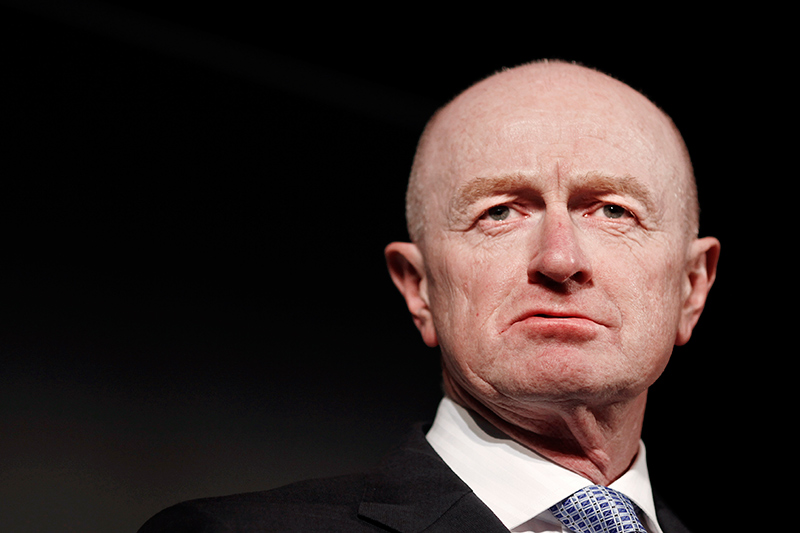Investing.com - The Reserve Bank of Australia kept its benchmark interest rate unchanged at a record low in February, but kept the door open for future cuts, it said on Tuesday.
In a statement, the RBA said it was leaving its benchmark interest rate unchanged at 3%, in line with expectations.
The central bank lowered rates by 25 basis points to 3%, the lowest since the 2009 global financial crisis, following its last meeting in December. Since November 2011, the RBA has slashed its cash rate by 1.75%.
In its accompanying rate statement, RBA Governor Glenn Stevens said, “The Board's view is that with inflation likely to be consistent with the target, and with growth likely to be a little below trend over the coming year, an accommodative stance of monetary policy is appropriate.”
He added that, “The inflation outlook, as assessed at present, would afford scope to ease policy further, should that be necessary to support demand."
Following the decision, the Australian dollar was lower against its U.S. counterpart, with AUD/USD shedding 0.24% to trade at 1.0415.
Meanwhile, Asian stock markets were broadly lower, with Australia’s ASX/200 Index dipping 0.5%, Japan’s Nikkei 225 Index tumbling 1.9%, while Hong Kong's Hang Seng Index sank 2.1%.
In a statement, the RBA said it was leaving its benchmark interest rate unchanged at 3%, in line with expectations.
The central bank lowered rates by 25 basis points to 3%, the lowest since the 2009 global financial crisis, following its last meeting in December. Since November 2011, the RBA has slashed its cash rate by 1.75%.
In its accompanying rate statement, RBA Governor Glenn Stevens said, “The Board's view is that with inflation likely to be consistent with the target, and with growth likely to be a little below trend over the coming year, an accommodative stance of monetary policy is appropriate.”
He added that, “The inflation outlook, as assessed at present, would afford scope to ease policy further, should that be necessary to support demand."
Following the decision, the Australian dollar was lower against its U.S. counterpart, with AUD/USD shedding 0.24% to trade at 1.0415.
Meanwhile, Asian stock markets were broadly lower, with Australia’s ASX/200 Index dipping 0.5%, Japan’s Nikkei 225 Index tumbling 1.9%, while Hong Kong's Hang Seng Index sank 2.1%.
